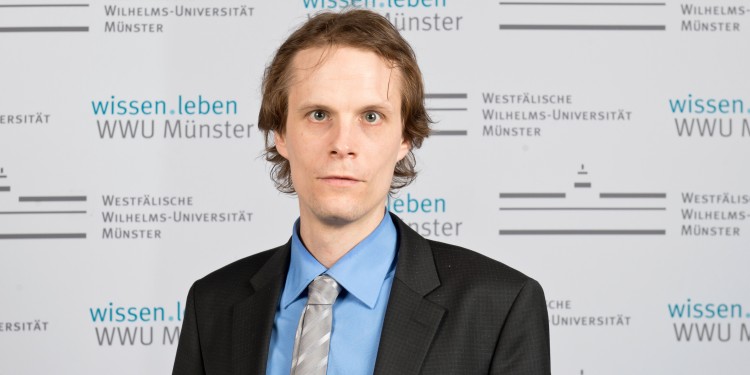
Academic career: the path to a professorship
It was while I was an undergraduate that I had the idea that an academic career might be something for me. At the time I was studying at Münster University and was working as a student assistant at what was then the Chair of Public, International and European Law. I was fascinated by the idea of being able to make a career out of satisfying my curiosity. Nevertheless, entering the academic world was anything but straightforward. After passing my state examination I first moved from Münster to Wiesbaden, where I embarked on my period of practical training. I didn’t get a lot of pleasure from this, and it confirmed my desire to seek an academic career.
It was, then, with great expectations that, after my second state examination, I started on my PhD. On the face of it, the conditions appeared to be excellent. I had a fascinating topic for my dissertation – on democracy in international law. Also, I had been awarded a scholarship and had a “quarter-job” at the Max Planck Institute of Comparative Public Law and International Law in Heidelberg. And yet, despite all of this, I soon began to have doubts about the calling I had felt for an academic career. The more I read and researched, the more I became aware of what I felt was my own imperfection. Immersing myself in theories of democracy and in the fundamentals of international law showed me how little I knew. Also, I was putting myself under pressure: if I wanted to start an academic career, then – or so I imagined – my dissertation would have to be really good. But every sentence I wrote fell short of my own standards. As a result, I noticed that I was slowly saying goodbye to the idea of an academic career. I started looking around for alternatives. I went to recruiting events and got information about working in management consultancies and law firms. I also took part in selection procedures for the German Foreign Office, because during my legal training I had worked at the German Embassy in Bangkok, which I had enjoyed most of all.
I had organised a research stay at New York University (NYU) for the second year of writing my PhD – and it was this that triggered the decisive turning-point. At NYU I enrolled in a seminar on current issues in international law. In this seminar, the discussions were so stimulating that at the end of every session I left with the feeling that it was an academic career that really fascinated me. At the same time, I managed to get over my writer’s block and proceed with my PhD.
After I returned from New York and submitted my PhD, I went to Bonn, to the Max Planck Institute for Research on Collective Goods, where I spent a total of seven and a half years. This period left its mark on me, fundamentally changing my understanding of law. I familiarised myself with methods relating to the social sciences and focused my research more on descriptive than on normative questions.
After completing my habilitation in 2014, there followed a period of uncertainty – the search for a professorship. But I was fortunate: shortly after I had submitted my habilitation thesis, the University of Münster advertised for a position which matched my own profile well. There was equal interest on both sides, with the result that since 2015 I have held the University’s Chair of Public, International and European Law and Empirical Legal Research. The fact that I have returned to the place where I studied – and, on top of that, to the Chair at which I worked as a student assistant while I was an undergraduate – is one of those strange-but-true stories from real life.
Prof. Niels Petersen holds the Chair of Public, International and European Law and Empirical Legal Research at the University of Münster.
